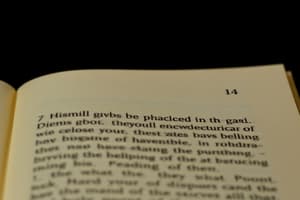Podcast
Questions and Answers
What are the ABCs of non-literary texts?
What are the ABCs of non-literary texts?
Accuracy, Brevity, Coherence, Confidence, Dignity, Emphasis, Facility, Grammatical Correctness, Honesty, Illustration, Judgment, Knowledge, Logic, Mechanical Neatness, Normal Procedure, Objectivity, Planning, Qualifications, Revision, Straight Sentences, Thoroughness.
Which principle emphasizes being tactful in the recording of data?
Which principle emphasizes being tactful in the recording of data?
- Coherence
- Accuracy (correct)
- Brevity
- Dignity
Brevity encourages using elaborate language.
Brevity encourages using elaborate language.
False (B)
Why is coherence important in non-literary texts?
Why is coherence important in non-literary texts?
What is a recommended practice for enhancing dignity in writing?
What is a recommended practice for enhancing dignity in writing?
Using ______ materials like charts and tables can enhance comprehension.
Using ______ materials like charts and tables can enhance comprehension.
What does mechanical neatness refer to in writing?
What does mechanical neatness refer to in writing?
What should be prioritized to ensure objectivity in writing?
What should be prioritized to ensure objectivity in writing?
What does planning involve in the context of non-literary texts?
What does planning involve in the context of non-literary texts?
Revision is the process of creating a document for the first time.
Revision is the process of creating a document for the first time.
Which example best illustrates the principle of thoroughness?
Which example best illustrates the principle of thoroughness?
Flashcards are hidden until you start studying
Study Notes
ABCs of Non-literary Texts
- Accuracy refers to the truthful and precise presentation of data, facts, and calculations in a report. Errors or illogical statements can lead to confusion and undermine the credibility of the text.
- Brevity emphasizes concise and direct writing, avoiding redundancies and flowery language. Using clear and concise language improves readability and understanding.
- Coherence ensures a logical arrangement of sentences and ideas with smooth transitions. Transitional phrases help connect ideas and create a smooth flow of information.
- Confidence establishes credibility by conveying authority on the topic. Using formal language and avoiding slang contributes to a more authoritative tone.
- Dignity involves using formal language to convey authority. Maintaining a professional and respectful tone enhances the credibility of the writer.
- Emphasis highlights important ideas through effective repetition and formatting techniques. Bolding or italicizing key points draws attention to significant information.
- Facility promotes ease of reading by arranging data and information logically. Presenting information in a clear and organized manner enhances comprehension.
- Grammatical Correctness ensures credibility by adhering to grammatical rules. Proper use of subject-verb agreement, punctuation, and other grammatical conventions creates a professional impression.
- Honesty involves acknowledging the contributions of others and demonstrating intellectual honesty. Citing research sources and using quotes with proper attribution maintains academic integrity.
- Illustration enhances comprehension by using visual aids such as charts, tables, and images. Visual representation of data can make complex information easier to understand.
- Judgment prioritizes quality over quantity, focusing on collecting relevant and concise data. Selecting key statistics that support the main argument strengthens the report’s impact.
- Knowledge involves analyzing and interpreting data accurately. Providing insights based on data trends, rather than simply reporting numbers, demonstrates a deeper understanding of the information.
- Logic ensures a systematic organization of the report, ensuring consistency among concepts. Presenting hypotheses followed by supporting evidence creates a logical flow of ideas.
- Mechanical Neatness enhances readability by ensuring proper formatting and presentation. Consistent margins, font styles, and overall formatting contribute to a professional and polished document.
- Normal Procedure emphasizes a clear and straightforward way to present factual, objective, and useful information. It follows acceptable conventions for report structure, including elements like the title, objectives/goals, and introduction.
- Objectivity involves presenting facts and information without personal bias or subjective opinions. It ensures the writing is fair, balanced, and based on verifiable evidence. Avoiding emotional language helps maintain neutrality.
- Planning is essential for a coherent and comprehensive non-literary text. It involves organizing ideas, outlining content, and determining the structure before writing. A clear outline helps visualize the flow of information.
- Qualifications refers to the validity and relevance of the information presented. Ensuring that data and arguments are credible and applicable to the topic at hand strengthens the report's authority.
- Revision is the process of reviewing and improving a document to enhance clarity, coherence, and overall quality. It involves checking for errors, refining content, and ensuring the text meets its intended purpose.
- Straight Sentences refer to clear and direct sentences often used for practical purposes. Maintaining a smooth flow of sentences enhances readability.
- Thoroughness ensures completeness and attention to detail in presenting information. It covers all relevant points, minimizing ambiguity and misunderstanding.
Studying That Suits You
Use AI to generate personalized quizzes and flashcards to suit your learning preferences.



